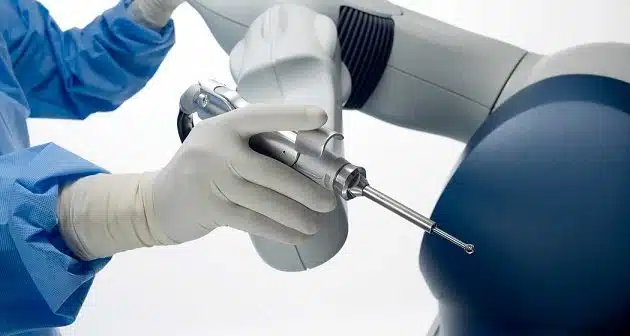According to the National Institutes of Health, the demand for joint replacements is expected to rise in the next decade. By 2030, total knee replacements in the United States are estimated to increase by 673 percent. Primary total hip replacements are estimated to increase by 174 percent. However, studies have shown that approximately 30 percent of patients are dissatisfied after conventional surgery.
Stephen Smith, M.D. is president and COO of Novant Health UVA Health System Prince William Medical Center and Haymarket Medical Center. He said, “With Mako, we can provide each patient with a personalized surgical experience based on their specific diagnosis and anatomy. It’s exciting to be able to offer this transformative technology to perform total knee, total hip and partial knee replacements in our community.”
Make Total Knee Application
The Mako Total Knee application is a knee replacement treatment option designed to relieve the pain caused by joint degeneration due to osteoarthritis that has not yet progressed to all three compartments of the knee. Through CT-based, 3D modeling of bone anatomy, surgeons can use the Mako System to create a personalized surgical plan. They can identify the implant size, orientation and alignment based on each patient’s unique anatomy.
The Mako System also enables surgeons to modify the surgical plan intra-operatively and assists the surgeon in executing bone resections. By selectively targeting only the part of the knee damaged by osteoarthritis, surgeons can resurface the diseased portion of the knee while helping to spare the healthy bone and ligaments surrounding the knee joint. Studies have shown robotic-arm assisted partial knee replacement to be two to three times more accurate than manual partial knee replacement procedures.
“We are proud to be among the first hospitals to offer this highly advanced robotic technology in our area,” Smith said. “The addition of Mako to our orthopedic service line further demonstrates our commitment to provide the community with outstanding healthcare.”

